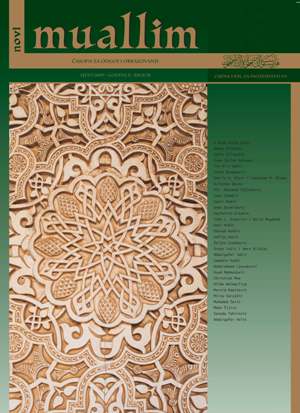ADMINISTRATION OF ISLAMIC AFFAIRS GENERAL INTRODUCTION AND THE B&H CASE
ADMINISTRIRANJE ISLAMSKIH PITANJA U SEKULARNOJ DRŽAVI: ISKUSTVA JUGOISTOČNE EVROPE SARAJEVO, (17. - 19. APRIL 2009.)
DOI:
https://doi.org/10.26340/muallim.v10i38.938Abstract
The administration of Islamic affairs in Southeast Europe offers lessons for Western Europe, where states often expect Islamic leaders to care for, represent, and control the Muslim population, while the latter also expects legitimacy and authoritative guidance. In the case of Bosnia-Hercegovina four different kinds of state, with different principles for minority protection, were heavily involved in shaping Islamic administration: a Muslim monarchy, Christian monarchies, the atheist socialist state, and state in transition to democracy. The Islamic Community, organised on a model similar to a national church, successfully adapted to these harsh and changing state-church relationships. It is also internally democratic and acknowledges the secular state. All this makes it an attractive model for study in the rest of Europe. However, it is under democracy that it may yet face its greatest challenge in the form of the open religious marketplace, where it has been slow to compete for market share in important sectors including women, youth, social work, fatwa-giving and charismatic religion. This is a revised and shortened version of the opening address for the Islam in South East Europe Forum (ISEEF)’s international conference “Administration of Islamic Affairs in Secular States: Southeast European Experience”, Sarajevo, 17–19 April 2009. A section on the structure of the IZ .has been omitted
Prijevod: Arnela Bećirović-Zimić
Downloads
Published
How to Cite
Issue
Section
License
Naknada:
a. Časopis ne naplaćuje naknadu za obradu članaka (APC) i naknadu za podnošenje članaka.
Autori koji objavljuju u ovom časopisu pristaju na sljedeće uvijete:
- Autori zadržavaju autorska prava i pružaju časopisu pravo prvog objavljivanja, pri čemu će rad jednu godinu po objavljivanju biti podložan licenci Creative Commons imenovanje koja omogućuje drugima da dijele rad uz uvijet navođenja autorstva i izvornog objavljivanja u ovom časopisu.
- Autori mogu izraditi zasebne, ugovorne aranžmane za ne-ekskluzivnu distribuciju rada objavljenog u časopisu (npr. postavljanje u institucionalni repozitorij ili objavljivanje u knjizi), uz navođenje da je rad izvorno objavljen u ovom časopisu.


